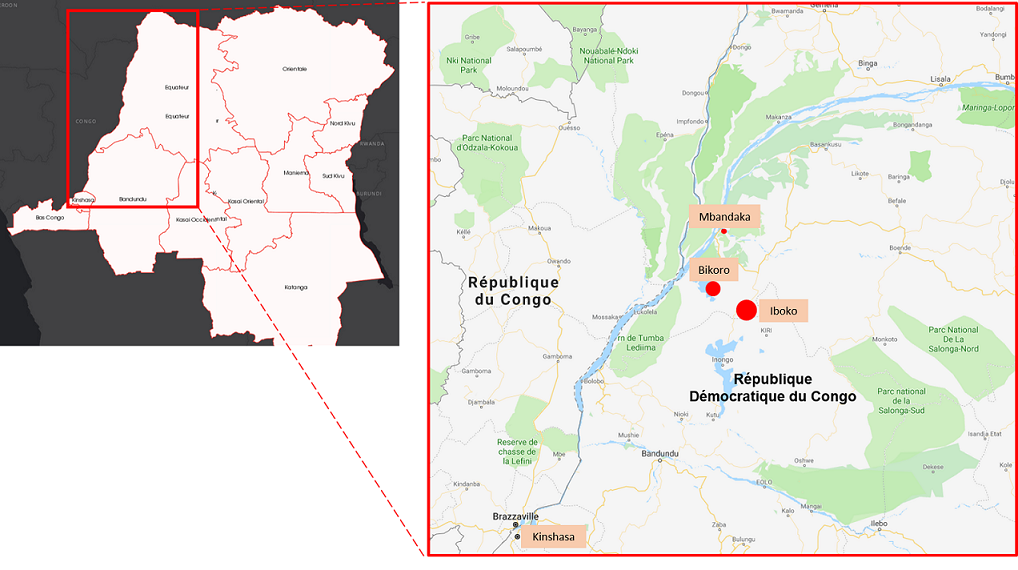Key facts:
- This is the 9th recorded outbreak of Ebola virus disease (EVD) in the Democratic Republic of Congo (DRC), with the most recent occurring in May 2017. It occurred from May to July 2018.
- 54 cases and 33 deaths have been reported (case fatality ratio: 61%).
- EVD is a severe acute illness in humans with an incubation period of 2-21 days.
- The causative agent of this outbreak was identified by the National Institute for Biomedical Research (INRB) of Kinshasa and Inserm as the Zaire ebolavirus species of the Filoviridae virus family, the same species that caused the 2014-2016 West African epidemic. The other 4 known species of the Ebolavirus genus are: Bundibugyo, Sudan, Reston and Taï Forest.
- The virus is transmitted to people from wild animals and spreads within the human population through direct human-to-human transmission, including broken skin, mucous membranes, blood or other bodily fluids of infected persons, as well as indirectly through contaminated surfaces and materials.
What is the situation on the ground?
The outbreak was declared on the 8th of May 2018 by the DRC health ministry, and the end of the outbreak was announced on the 24th of July 2018.
A total of 54 cases (38 confirmed and 16 probable) were reported. Of these cases, 33 died (overall case fatality ratio: 61%), including 17 deaths among confirmed cases. Cases were reported from three health zones. Seven cases were health care workers, of which two died.

Map showing the locations and relative numbers of Ebola cases (red dots) in the affected region of the Equateur Province
What was the involvement of REACTing?
The partnership established between the two institutes, INRB of Kinshasa and Inserm (University of Montpellier) is an active part of the REACTing platform, as well as its program to monitor the reservoir of the Ebola virus in Africa. This collaboration allowed the transfer of technology and the exchange of researchers between the two institutes, which permitted the on-site identification of the virus circulating in the DRC outbreak. This genetic characterisation was achieved without requiring the isolation of the live virus and just under 2 weeks following the official declaration of the outbreak by the DRC Ministry of Health, thus contributing to a more rapid response.